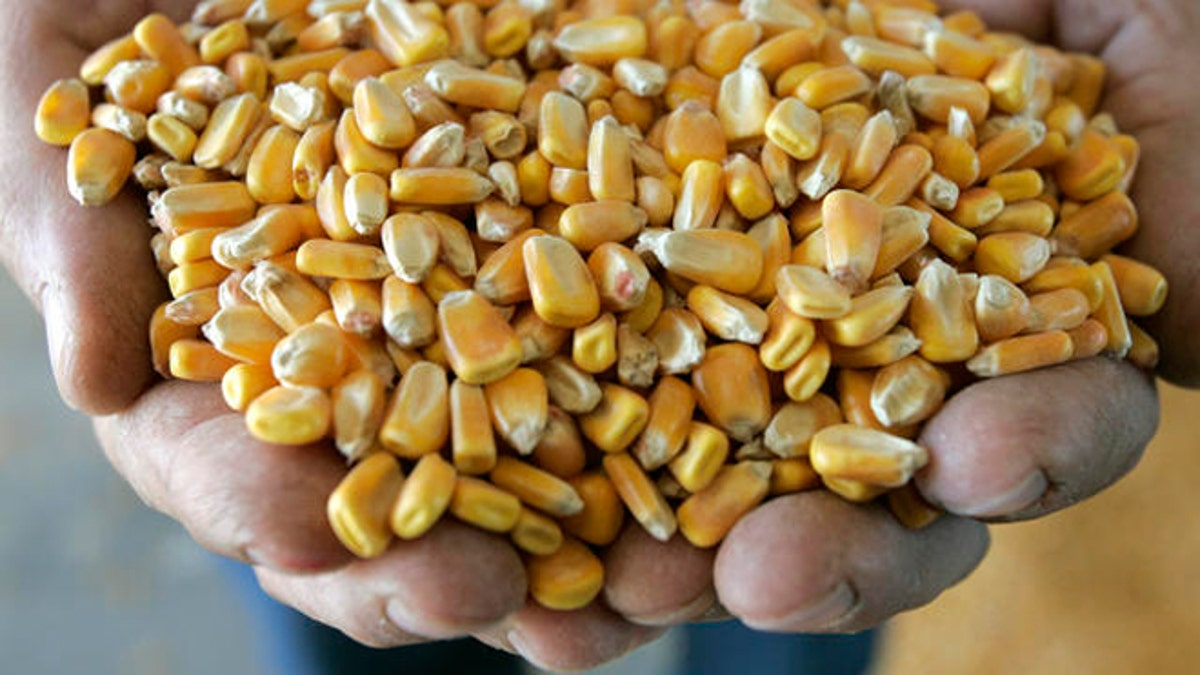
(AP)
Last month, on August 13, the nation's petroleum industry formally asked the Environmental Protection Agency to reduce federal requirements on the amount of ethanol that refiners must blend with gasoline. The request claimed that existing ethanol standards hurt the economy and damage car engines.
That critique has been around for years. But it doesn't jibe with the facts. Indeed, Big Oil's call to loosen the nation's ethanol requirements is misguided.
Corn-based fuel has proven to be a clean-burning energy source. Its production creates jobs and reduces American dependence on foreign oil.
With carbon emissions at an all-time high, ethanol still offers one of the few workable and economically sound strategies for meeting the nation's environmental goals.
[pullquote]
Because we are now seeing a flagging demand for gasoline and an unexpected surplus in ethanol supplies, the current ethanol requirement will require refiners to produce fuel containing more than 10 percent ethanol -- a blend known as "E10."
Big Oil industry groups argue that a higher ratio of ethanol will harm most automobile engines and force drivers to bear new costs for repair and maintenance.
This claim is flat-out false. The EPA has conducted exhaustive testing and found that blends as high as "E15" -- 15 percent ethanol -- are safe for all vehicles made in the last eleven years. In fact, E15 is such a high-performing fuel that it has been used to power the precision engines in NASCAR racecars.
Critics have also argued that ethanol production has driven up global food prices by cutting into the supply of corn. But the facts tell a different story.
As a sixth-generation Iowa farmer, I can tell you that corn is in plentiful supply in the United States and the world -- so much so that some farmers actually hold over excess corn from year to year.
Today, my husband, our two sons, and their families grow corn and soybeans and manage a seed business. Our families have farmed in Iowa for 7 generations. We are especially aware of the vicissitudes of our changing planet.
We also understand more than most the importance of living sustainably. It's for this reason that we take great pride in contributing to our nation's supply of grain for food, feed, and fuel.
The supposed problems with ethanol are non-existent.
Most of the money spent on food goes towards packaging, marketing, and fuel costs-agricultural products represent only a small fraction. In fact, a recent report from the World Bank shows that the rise in global food prices over the last few years was driven primarily by crude oil prices-not by homegrown ethanol.
However, ethanol's benefits are very real.
Ethanol contributes to the nation's energy security by easing our reliance on foreign oil. Thanks in large part to expanded ethanol use, America's crude oil imports dropped by about 12 percent in 2012. Since 2005, petroleum imports have fallen by about a third.
Meanwhile, money that would otherwise enrich dangerous nations abroad is creating jobs here in the United States and bolstering our country's agriculture sector.
Last year, the ethanol industry supported nearly 400,000 jobs and contributed $30.2 billion to Americans' household income. Many of those jobs were on family farms, like mine.
It's not surprising that the petroleum industry is fighting with all its might to discredit ethanol. According to just-released government data, global CO2 emissions hit an all-time high in 2011 -- and they're rising.
Fossil-fuel combustion is largely to blame, so the fossil-fuel industry has recognized that its very survival depends on demonizing those that offer greener alternatives.
Regardless of one's position on climate change, pressure is mounting to reduce the amount of carbon we emit into the atmosphere. Blending ethanol with our gasoline supply helps to significantly limit pollutants from combustion. Compared to gasoline, ethanol emits between 48 and 59 percent fewer greenhouse gases emissions, according to researchers at the University of Nebraska.
Ethanol isn't a dream for the future. It's proven now.
Ethanol presents a serious threat to petroleum firms' dominance and monopoly in the energy sector. That's why they've ramped up their anti-ethanol crusade.
Thanks to ethanol, America has a chance to reduce emissions and create jobs while sending fewer dollars to oil-rich -- and often hostile -- foreign countries.
Ethanol enables our country to thrive, keeping jobs in our rural communities, and enables the U.S. to utilize the resources we have here at home. That the petroleum lobby has been so relentless in vilifying this fuel is only more evidence of its value.
